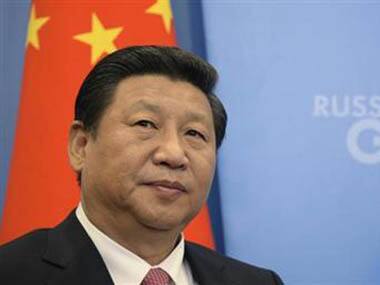Chinese President Xi Jinping’s maiden visit to India in a couple of days (17-19 September) promises to be historic, though India’s main strategic concerns like resolution of the festering boundary dispute, the stapled visa provocation and the presence of over twenty thousand Chinese troops in Pakistan Occupied Kashmir (PoK) are likely to remain in the to-do list for Sino-Indian relations for quite some time. This may sound like a paradox. One may question that if the three most important red rags from the Indian viewpoint remain unresolved then how Xi’s upcoming India visit is going to be historic? Consider the concrete deliverables that are expected during Xi’s three-day visit. China is going to pledge $100 billion in investments in India for the next five years, almost triple the amount Japan pledged to India during Prime Minister Narendra Modi’s recent visit to Japan. Half of this amount is expected to be in the core sector of railways, an area which desperately needs funding – it doesn’t matter where the funds come from. Xi is expected to announce another route for Kailash Mansarovar Yatra, a politically-correct move that would be music to the ears of the BJP’s Hindu vote bank. [caption id=“attachment_1712277” align=“alignleft” width=“380”]  Can China wean India from Japan? Unlikely. Reuters image[/caption] Xi is likely to hard-sell the bullet train technology to India at far cheaper prices than Japan. Though Japan pioneered the bullet train technology and perfected it, it is China which is the world leader in this area and boasts of the world’s longest high-speed rail network of over ten thousand kilometres. In contrast, India has no bullet train network. Moreover, there is hardly any comparison between India and China when it comes to rail networks. India has added just 11,000 kilometres of rail network in the 67 years since independence, whereas China added 14,000 kilometres only between 2006-07 and 2011. Around a dozen agreements are likely to be signed during Xi’s visit which would underline the importance of this major diplomatic event. From China’s perspective, Xi’s most important diplomatic objective in India would be to convey to the Modi government that it does not have to look far when it has immediate neighbours like who are ready to aid India’s growth story. China is obviously concerned about India’s growing proximity with its arch-rival Japan. Xi’s main underlying message to Modi during his trip would be that he can bring far more to the table for India than Japan ever can. Xi’s covert diplomacy would inevitably veer around Japan, and he would be pulling all stops to convey to the Indian leadership that China is a better bet for India than Japan or anyone else. The likely Chinese pledge of investing $100 billion in India over the next five years would be a demonstration of this Japan-centric covert diplomacy vis-a-vis India. However, despite all this grand-standing the Chinese won’t be successful in weaning India away from Japan. The reasons for this are strategic mainly. India and Japan do not have a boundary dispute (simply because they do not share borders). India and China do. India and Japan have never fought a war against each other. India and China have. If there is one country which can threaten India it is China; and certainly not Japan. Now against the backdrop of these hard facts if China has to really make inroads into the psyche of the Indians the only route for it is resolving the three issues (named earlier) to India’s satisfaction. Straws in the wind suggest that there will be no breakthrough in the vexed boundary dispute. The stapled visa issue, which effectively amounts to China taking sides in India-Pakistan dispute in favour of Pakistan, will also remain unresolved. As for the presence of thousands of Chinese troops in PoK, Xi is likely to mouth the same old argument that these are construction workers engaged in building an economic corridor with Pakistan. Yet it will be good to see the Chinese President unveiling an ambitious roadmap to engage with India and pour in a hundred billion dollars for fast-tracking Indian growth. But all this is largely because of the Japan factor. It means that India’s Japan policy is working very effectively with China. If India had not engaged with Japan and other countries like the United States, Vietnam, South Korea, Philippines, Singapore and Myanmar the way it has over the last five or six years, China would not care for India. As for other strategic points mentioned above, the Modi government will obviously be best advised to go by the thumb rule in international diplomacy: trust, but verify. The writer is Firstpost Consulting Editor and a strategic analyst who tweets @Kishkindha.
Despite all the grand gifts the Chinese won’t be successful in weaning India away from Japan. The reasons for this are strategic mainly.
Advertisement
End of Article
Written by Rajeev Sharma
Consulting Editor, Firstpost. Strategic analyst. Political commentator. Twitter handle @Kishkindha. see more


)

)
)
)
)
)
)
)
)



